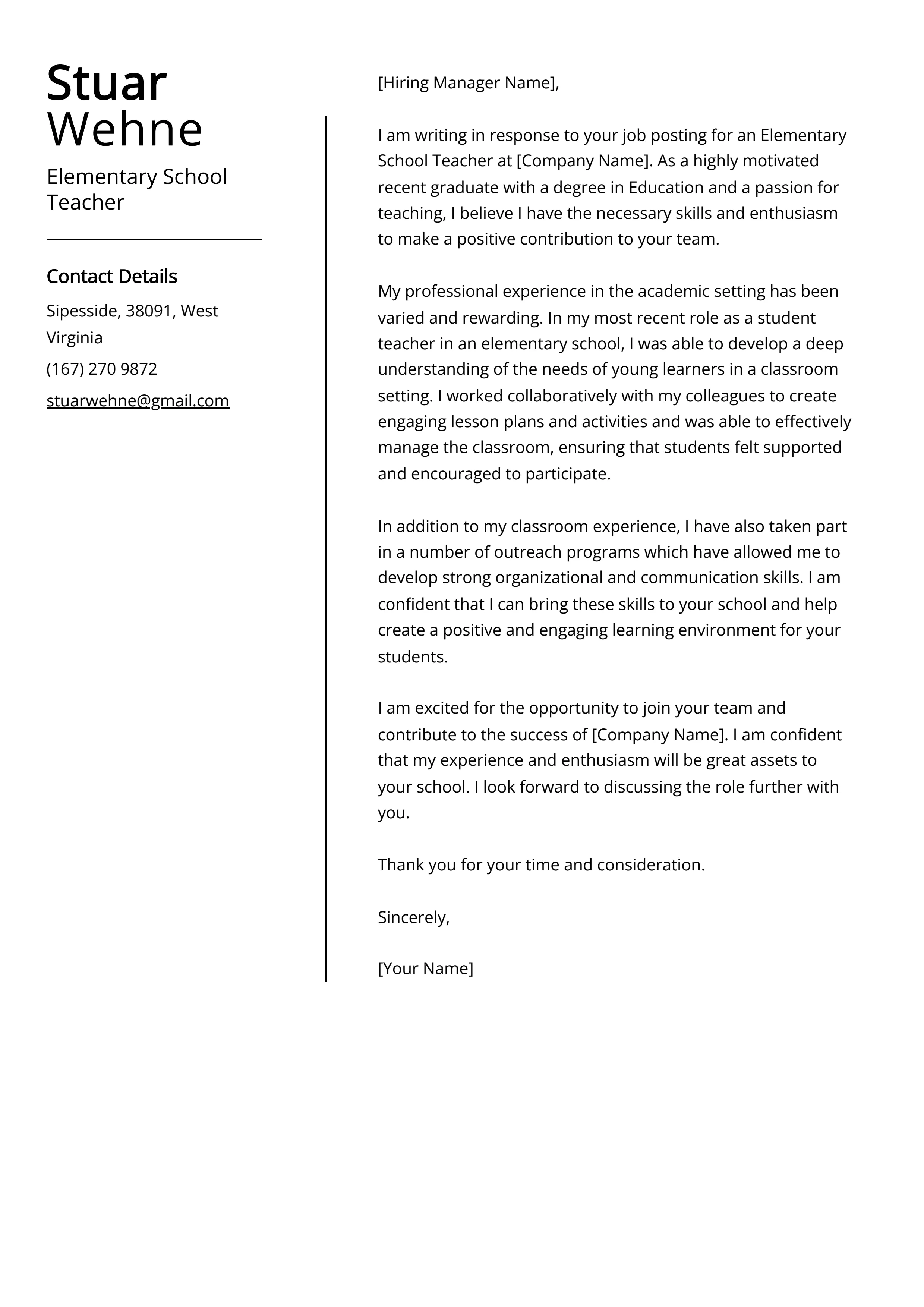Crafting Your Counselor Cover Letter
A compelling counselor cover letter is your first opportunity to make a strong impression on a potential employer. It’s more than just a formality; it’s a critical marketing tool that showcases your skills, experience, and passion for helping elementary school students. This guide will provide you with the essential steps to create a cover letter that stands out, grabs attention, and helps you land your dream job as an elementary school counselor. It’s important to remember that the cover letter complements your resume, and together, they paint a comprehensive picture of your qualifications and suitability for the role.
Researching the School & Role
Before you begin writing, thorough research is crucial. Start by investigating the elementary school where you’re applying. Visit their website to learn about their mission, values, and any specific programs they offer, especially those related to student well-being. Understand the school’s culture, any recent initiatives, and the overall environment. This research will enable you to tailor your cover letter to demonstrate that you understand their unique needs and challenges. Check the job description meticulously, noting the specific requirements, preferred qualifications, and any highlighted responsibilities that the school is looking for in a counselor. This will inform the skills and experiences you should highlight in your letter.
Understanding the School’s Culture
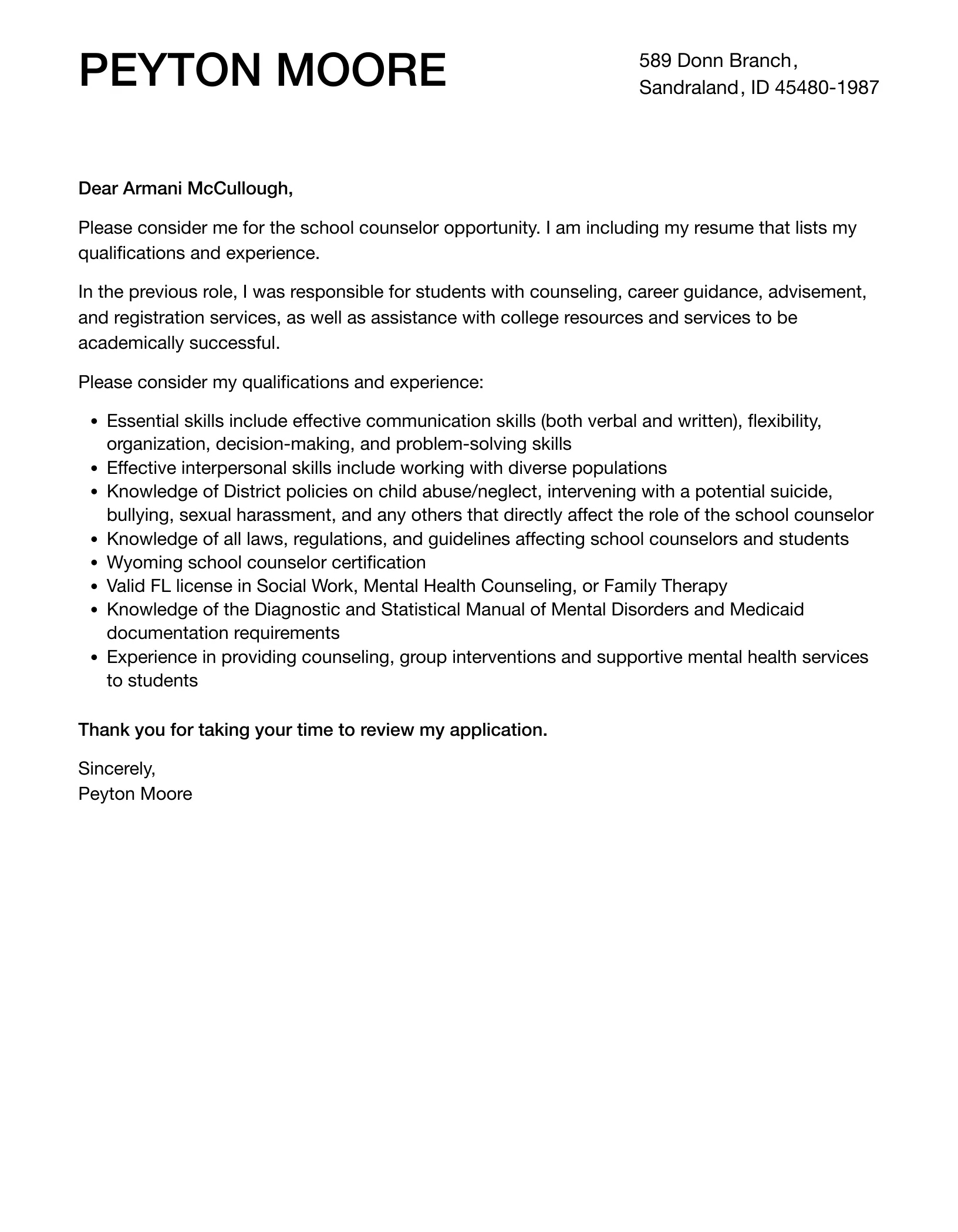
Delving deeper into the school’s culture means looking beyond the surface. Explore the school’s social media presence, if any, to get a sense of the community and the events they host. If possible, try to connect with current employees, or parents of students. If you know someone who works at the school, speak to them about the school’s atmosphere. This will help you understand the school’s unique aspects and to personalize your cover letter, showing the hiring manager that you understand their school’s specific needs. Referencing specific programs or initiatives demonstrates that you’ve taken the time to learn about the school. It is important to tailor the cover letter to the school; a generic letter won’t make a good impression.
Highlighting Relevant Skills & Experience
Your cover letter should shine a spotlight on your relevant skills and experience. Focus on those that align with the job description and the school’s values. This might include experience in individual and group counseling, crisis intervention, conflict resolution, and creating and implementing positive behavior support systems. Providing concrete examples of how you’ve used these skills to benefit students will significantly strengthen your application. Moreover, ensure that you highlight your ability to collaborate with teachers, parents, and other school staff. Emphasize your skills in communication, empathy, and building rapport with students, critical qualities for an elementary school counselor.
Academic Qualifications
Clearly state your academic qualifications, including the degrees and certifications you hold. Specify your Master’s degree in Counseling or a related field and any state certifications that are necessary for the role. Mention any specializations or training relevant to elementary school counseling. If you have specialized training in areas like play therapy, or trauma-informed practices, make sure to include those. If you’ve received honors, or have been recognized for exceptional performance in your studies, it’s beneficial to mention those achievements as well, demonstrating your commitment to excellence in your field.
Experience Working with Children
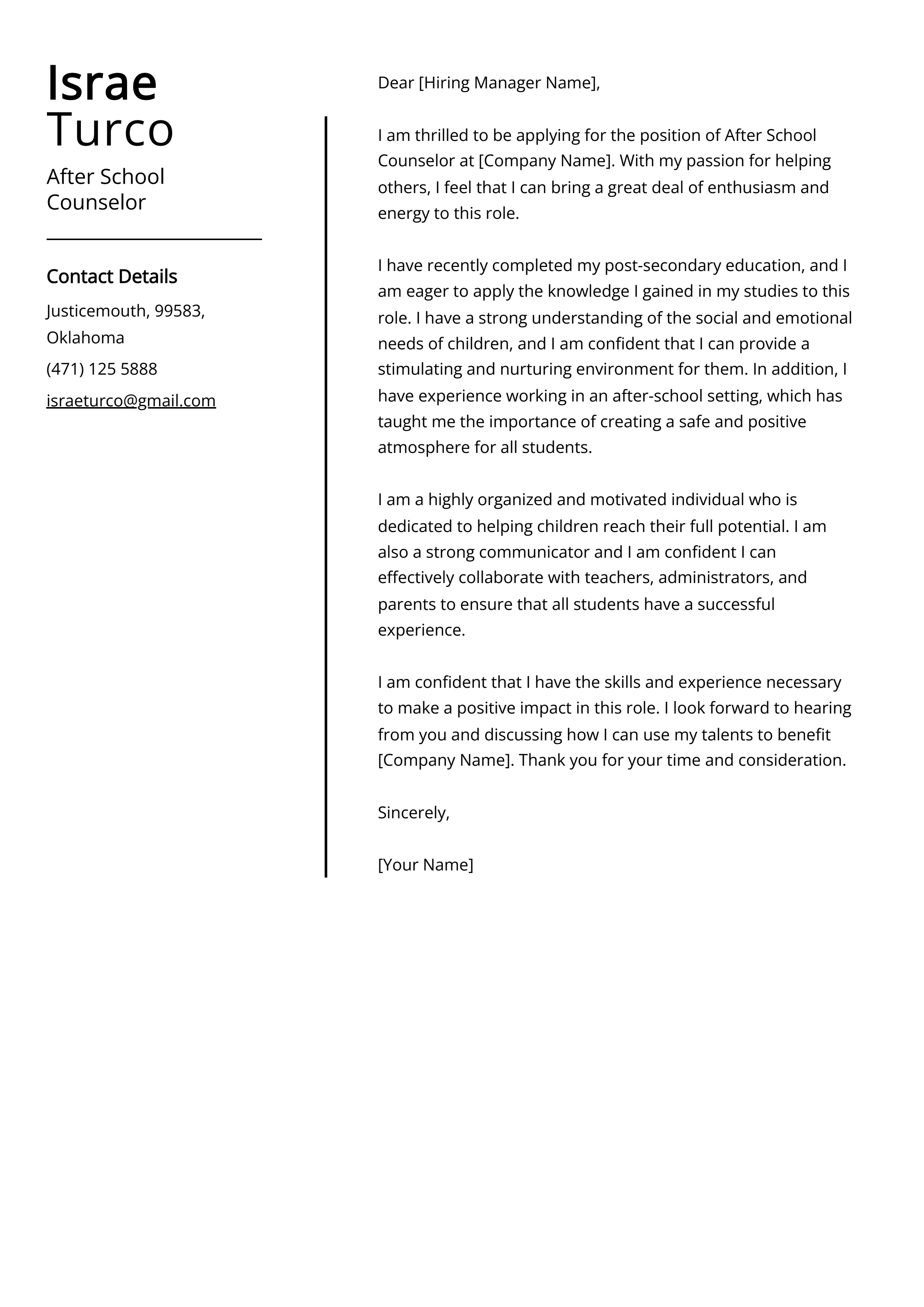
Elaborate on your experience working with children in various settings. This could include internships, volunteer work, or previous counseling roles. Mention any experience with elementary-aged students and their unique developmental needs. Providing specific examples of how you’ve supported children’s emotional, social, and academic growth makes your experience more relatable and impactful. Highlight any programs you’ve developed or participated in, such as anti-bullying campaigns, character education initiatives, or social skills training. Demonstrating a deep understanding of elementary school students’ needs will showcase your suitability for the role.
Counseling Techniques & Strategies
Detail the counseling techniques and strategies you’re proficient in, such as Cognitive Behavioral Therapy (CBT), play therapy, or solution-focused therapy. If you are knowledgeable in any specific evidence-based programs, be sure to mention them. Showcase your ability to implement these techniques effectively, addressing the emotional, social, and behavioral needs of elementary school students. Explain how you assess student needs, develop and implement counseling plans, and track progress. Demonstrate your expertise in creating a safe and supportive environment, where students feel comfortable expressing their feelings and concerns. Mention how you integrate these strategies into the school setting.
Tailoring Your Cover Letter
Personalization is crucial for making your cover letter stand out. Avoid using generic templates. Instead, adapt the content to each specific job and school. Show that you’ve thoroughly researched the school and understand their specific needs. Highlight the skills and experiences that align perfectly with the job description. Avoid simply listing your skills and experience. Instead, focus on how you can contribute to the school’s success, and how you can make a positive impact on the students and the community. The more tailored your cover letter is, the higher your chances of impressing the hiring manager.
Matching the Letter to the Job Description
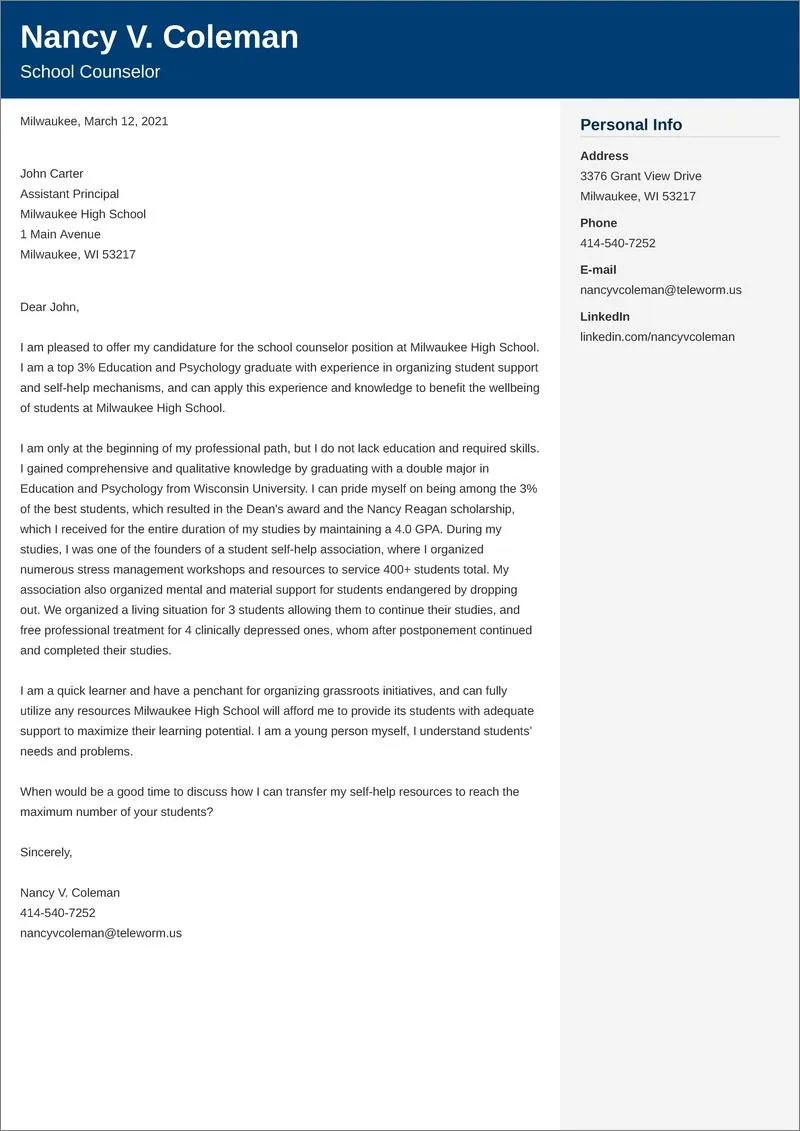
Carefully analyze the job description to identify the key requirements and desired qualifications. Then, use your cover letter to address these points directly. Use keywords and phrases from the job description to ensure your letter aligns with the school’s needs. For instance, if the job description emphasizes experience with crisis intervention, ensure you describe your relevant experience in that area. If the job description highlights the need for collaboration with teachers and parents, demonstrate how you’ve successfully collaborated with these stakeholders in the past. This targeted approach demonstrates that you’ve read the job description carefully and are a strong fit for the role.
Emphasizing Achievements
Rather than simply listing your responsibilities, emphasize your achievements. Use action verbs to describe your accomplishments. For example, instead of writing “Provided counseling to students,” you could write “Developed and implemented a successful group counseling program for students struggling with anxiety, resulting in a 30% decrease in reported anxiety symptoms.” Focus on the impact of your work. The hiring manager wants to know what results you have achieved in your previous roles. Quantify your accomplishments wherever possible to provide concrete evidence of your capabilities. By focusing on your achievements, you’ll showcase how you can contribute to the school’s success.
Quantifying Your Accomplishments
Use numbers and data to quantify your achievements. Whenever possible, provide specific metrics to illustrate the impact of your work. For example, if you implemented a new program, mention the number of students who participated, the percentage improvement in student behavior, or the reduction in disciplinary incidents. Use numbers to highlight your accomplishments. If you improved attendance rates, specify by what percentage. When you include specific data, your achievements will be more compelling and memorable. Quantifiable accomplishments demonstrate your ability to achieve results and your dedication to measuring the impact of your work.
Formatting & Structure
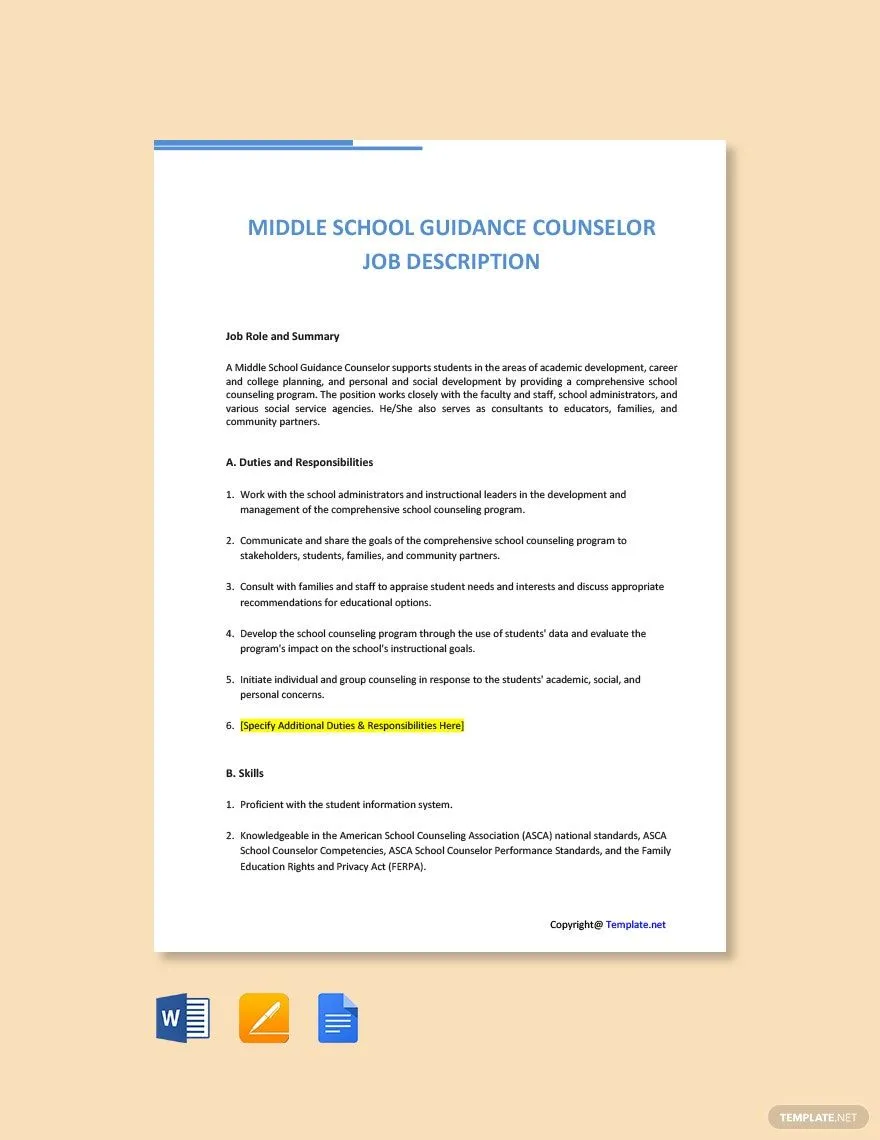
Your cover letter should be well-formatted, easy to read, and visually appealing. Use a professional font, such as Times New Roman, Arial, or Calibri, and ensure that the font size is appropriate for readability, typically 11 or 12 points. Use consistent formatting throughout your letter, including the same font, font size, and spacing. Keep your letter concise. Recruiters often have to read many cover letters, so a short, engaging letter is essential. Aim for a single page in length, and use clear paragraphs and headings to break up the text. This will make it easier for the hiring manager to scan and understand your qualifications quickly.
Proper Font & Spacing
Choosing the right font and spacing is key to readability. Select a font that is easy to read on screen. Double-space your cover letter for easier reading. Use single spacing between lines within each paragraph, and insert a blank line between paragraphs to make your letter more visually appealing. Use standard margins (1 inch on all sides) to provide enough white space. This will improve readability and make your cover letter appear professional and organized. Be consistent with your formatting; maintain the same font, font size, and spacing throughout the entire document to avoid a cluttered appearance.
Addressing the Hiring Manager
Address your cover letter to the hiring manager by name, if possible. Find out the name of the person responsible for hiring the elementary school counselor and address the letter directly to them. If you can’t find the name, use a general greeting such as “Dear Hiring Committee.” Avoid generic greetings like “To Whom It May Concern.” Personalizing your greeting shows that you’ve taken the time to research the school and are genuinely interested in the position. It immediately grabs the reader’s attention and makes your cover letter more engaging.
Writing a Compelling Opening
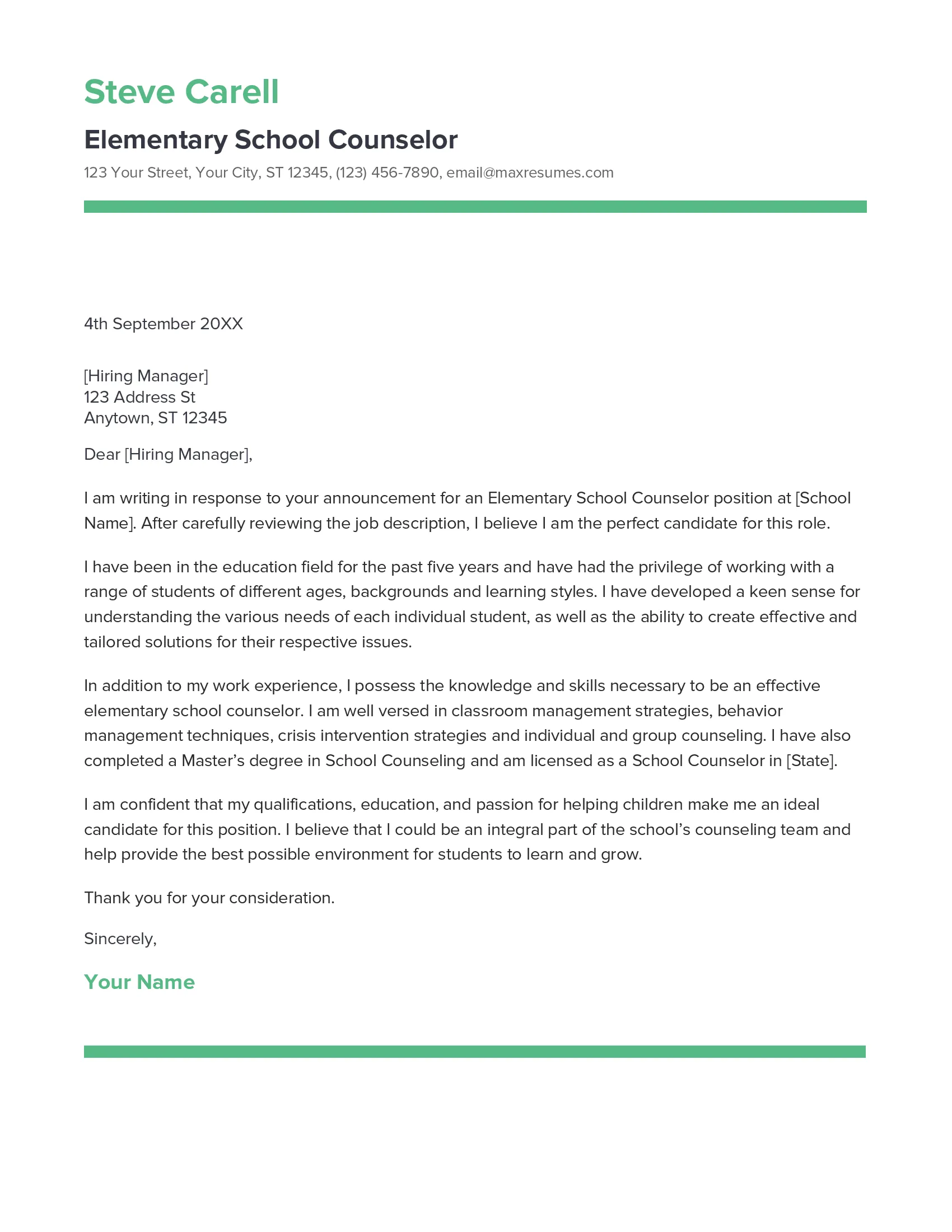
Your opening paragraph is your chance to grab the hiring manager’s attention. Start with a strong, engaging statement that immediately conveys your enthusiasm for the position. State the specific role you’re applying for and how you learned about the opportunity. Briefly mention why you’re excited about the role and why you’re a good fit for the school. You can also briefly mention your key skills or qualifications. The opening paragraph sets the tone for the entire letter and encourages the hiring manager to keep reading. If your opening is dull or generic, the hiring manager may not continue reading, so make it count!
The Body of Your Cover Letter
The body of your cover letter should provide details about your qualifications, experiences, and skills. Divide the body into several paragraphs. Each paragraph should focus on a specific aspect of your suitability for the role. Connect your skills and experiences with the requirements outlined in the job description. Provide specific examples to support your claims and use action verbs to describe your accomplishments. Focus on what you can offer the school. Show how your skills, knowledge, and experiences align with their needs. This section should highlight why you are the best candidate for the position.
Showcasing Your Passion & Enthusiasm
Express your passion for working with elementary school students. Demonstrate genuine enthusiasm for counseling and your commitment to supporting their social, emotional, and academic well-being. Convey this enthusiasm throughout your cover letter, from your opening statement to your closing paragraph. The more you showcase your passion, the more memorable you become. Share examples of why you love working with children and how you plan to make a positive impact. Your passion will help you stand out from other candidates.
Addressing Any Gaps in Experience
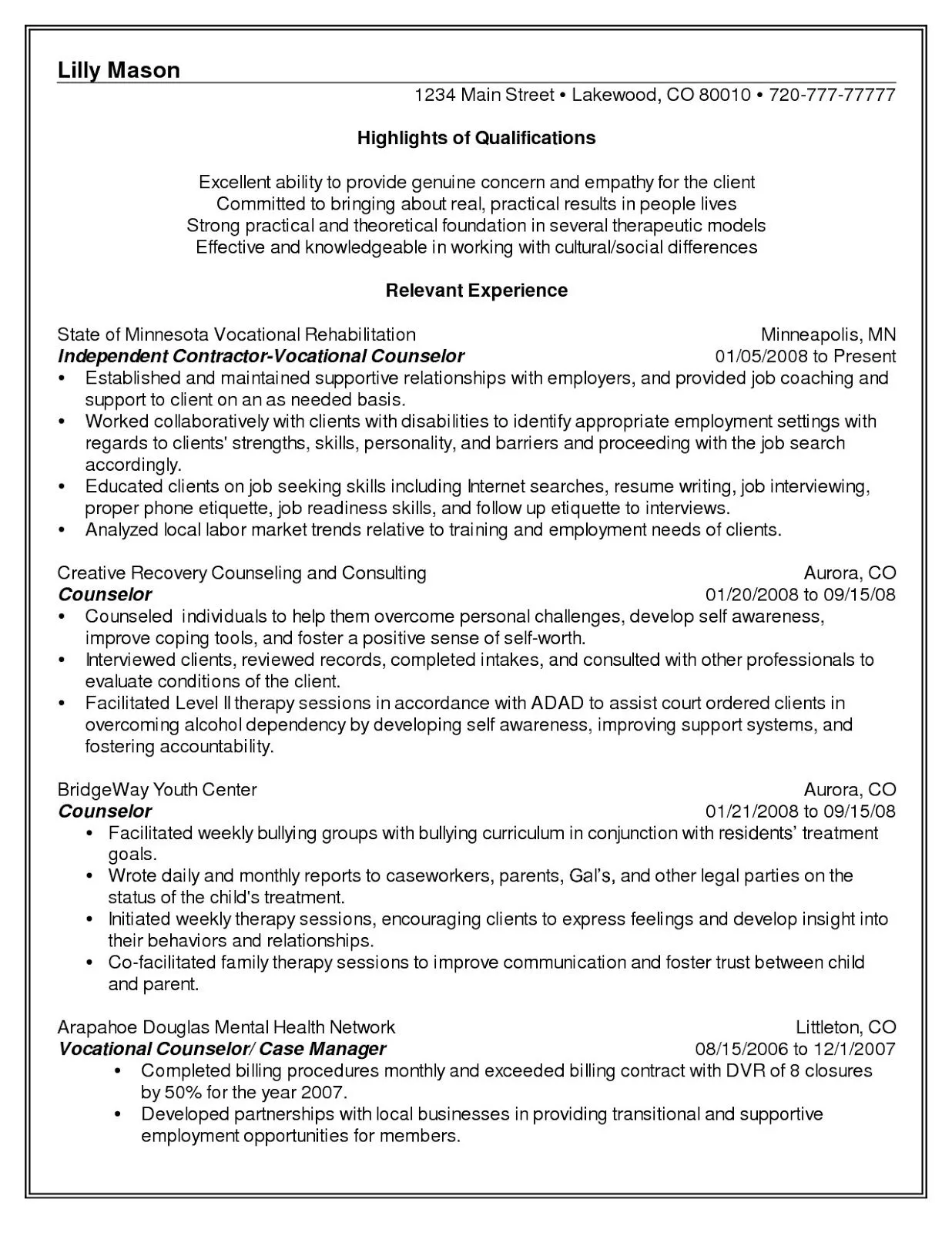
If there are any gaps in your experience or any aspects of your resume that may raise questions, address them proactively in your cover letter. Be honest and straightforward. Explain the situation briefly and positively. Frame any gaps as an opportunity to learn and grow. Explain what you did during that time and what you learned. Addressing gaps demonstrates your ability to overcome challenges and your commitment to the field. It also prevents the hiring manager from making assumptions, ensuring your application is evaluated fairly.
Making a Strong Closing
Your closing paragraph should reiterate your interest in the position and express your gratitude for the opportunity to be considered. Reiterate why you’re a good fit for the role and summarize your key qualifications. End with a strong call to action. Express your enthusiasm for the opportunity to discuss your qualifications further and indicate your availability for an interview. Make it clear that you’re eager to learn more about the position. End on a positive note, reinforcing your interest in the role and the school, to leave a lasting positive impression.
Expressing Your Interest
Always express your strong interest in the position. Reiterate your enthusiasm for the opportunity to contribute to the school’s counseling program and its community. Show the hiring manager that you’re truly excited about the role and the opportunity to work at their school. If you are excited, it will show in your writing. Be specific about why you’re interested in the particular school or the position. Highlight what attracted you to the role and how you see yourself making a positive impact.
Providing Contact Information
Ensure that your contact information is easy to find and is included in your cover letter and resume. Include your full name, phone number, and email address. Also, make sure that your email address is professional. Always double-check that your contact information is current and correct so that the hiring manager can easily reach you. The hiring manager needs to be able to easily contact you for an interview or to request additional information. Ensure that all your contact details are readily available to potential employers.
Proofreading & Editing
Before submitting your cover letter, thoroughly proofread and edit it for any errors. Errors can undermine your credibility. Check for grammatical errors, spelling mistakes, and typos. Ensure your letter is easy to read and free of any awkward phrasing. Read your letter aloud to catch any errors. If possible, ask a friend, colleague, or family member to review your cover letter, as a fresh pair of eyes can often identify mistakes that you might have missed. Proofreading and editing ensure your cover letter reflects your professionalism and attention to detail.
Avoiding Common Mistakes
Avoid making common mistakes that can hurt your chances of getting hired. Don’t use generic cover letters that are not tailored to the specific job and school. Avoid grammatical errors, spelling mistakes, and typos. Do not exceed the one-page limit, and avoid using jargon or overly complicated language. Do not be negative or critical of previous employers or colleagues, and avoid focusing solely on your needs rather than on how you can contribute to the school’s goals. The more you avoid common mistakes, the better your chances of getting hired.
Grammar & Spelling Checks
Use grammar and spell check tools to review your cover letter. These tools can catch many errors, but they’re not foolproof. Pay close attention to the words that are flagged. Always double-check your work to ensure your cover letter is free of errors. Mistakes can reflect negatively on your professionalism and attention to detail. Proofread your cover letter carefully to ensure that every word is spelled correctly, and that the grammar is impeccable. Errors can be detrimental to your job prospects.
Seeking Feedback
Ask for feedback from trusted sources. Share your cover letter with friends, family members, or career counselors to get their opinions. If you have a mentor or a colleague in the counseling field, ask them to review your cover letter and provide feedback. Request specific feedback on the content, formatting, and tone. Use their suggestions to improve your cover letter and make it more effective. Having someone else review your cover letter can improve its impact and increase your chances of getting noticed.
